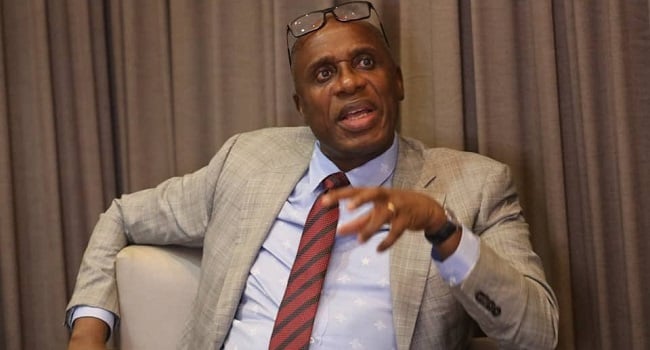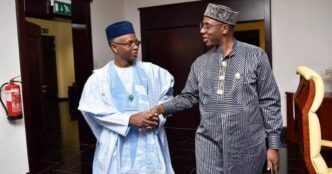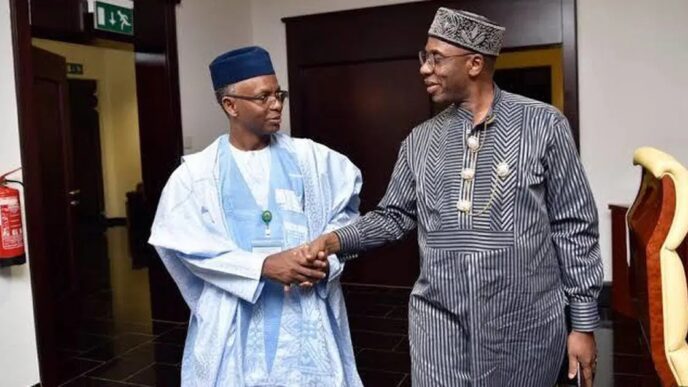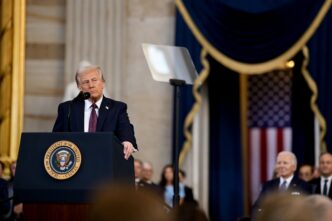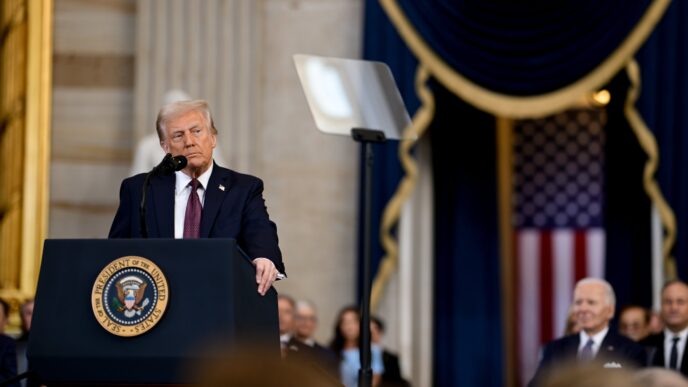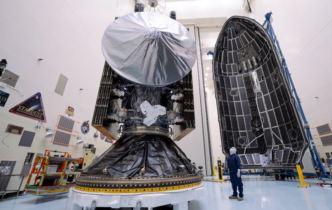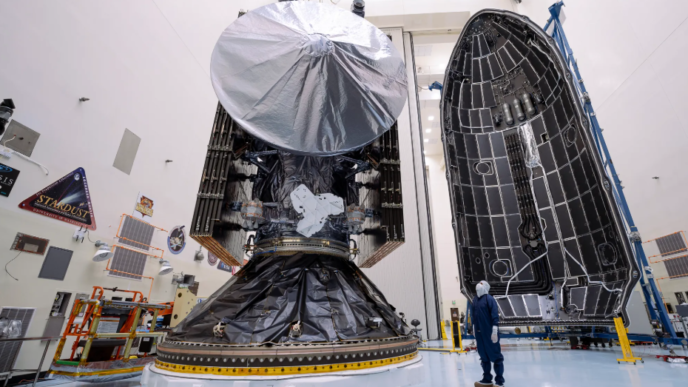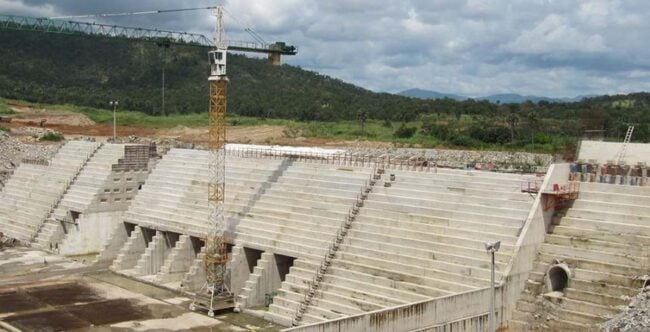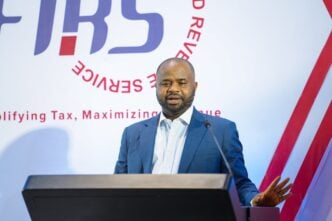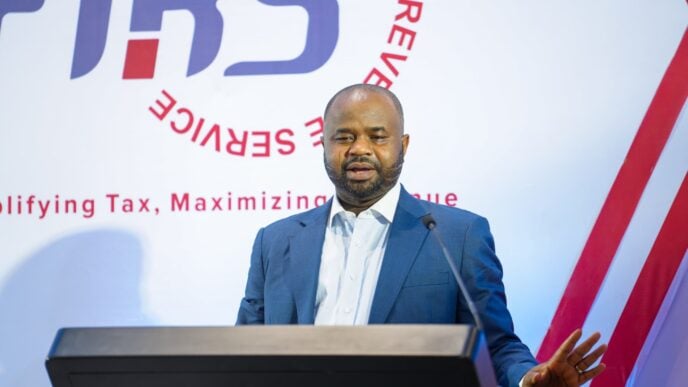Rotimi Amaechi
Having not succeeded in his attempt to win the ticket to contest for the 2023 presidential election under the banner of the ruling All Progressives Congress (APC) and having earlier followed the moral route to resign from his ministerial post before purchasing the party’s nomination form for the APC presidential primary election, Rt Hon Chibuike Rotimi Amaechi could only wait for the tenure of the immediate past president Muhammadu Buhari, in whose government he served for eight years as minister of transportation, to end before he decided on his next line of action.
But no sooner did Buhari hand over the reins to the incumbent President Bola Tinubu on May 29, 2023, than Amaechi took the back seat like a man who desired a rest after the rigours of governance. He was rarely seen or heard and decided to also shun publicity. Of course, the new administration did not have him in reckon and ultimately did not associate with him at any level. He virtually disappeared from the political firmament, leaving his numerous fans and admirers to guess what he could be up to.
The silence lasted until January 29, 2025, when Amaechi, at a two-day event in Abuja, themed “Strengthening Nigeria’s Democracy: Pathway to Good Governance and Political Integrity,” organised by the African Centre for Leadership, Strategy and Development, the Centre for Democracy and Development, the Westminster Foundation for Democracy, the Peering Advocacy and Advancement Centre in Africa and the National Peace Committee, said the absence of a functional middle class is a critical challenge on national development, noting that the Nigerian people are feeling the harsh impacts of the removal of fuel subsidy by the Tinubu administration.
Specifically, Amaechi said: “The last time Nigeria had the middle class was under President Olusegun Obasanjo because he created an economy that generated jobs.”
Advertisement
As an undisguised attack on the current administration, he also said: “Now, it is either you are rich or you are poor. If social housing and investments in agriculture had been implemented alongside subsidy removal, people would not feel the impact as harshly as they do now.”
Perhaps, not one to condemn a policy without offering a solution, the Rivers State former governor also said: “Admittedly, the removal of fuel subsidy was unavoidable for any president, but the timing and preparedness on the part of this administration were faulty. If I were the president, I would not have removed the subsidy without creating jobs and making provision for social housing as cushioning measures.”
Just in case critics swarmed Amaechi, asking him to proffer the “how”, here was he again at his didactic best: “If you build between 200,000 and 300,000 houses in the states, how many jobs have you created? At least, 300,000 bricklayers, 300,000 carpenters, and 300,000 plumbers. By the time you do those things, what have you done? You have put money in the hands of the people.”
Advertisement
Well, he is not the president and it may never be known how he would have fared in the exalted post. But suffice to say he is renowned for being focused and bullish in a deliberate manner that leaves no room for anyone to doubt his ability.
There was sufficient evidence for the foregoing.
In his maiden address to the people of Rivers State as he assumed office as the governor on October 27, 2007, he did not mince words in telling the indigenes and residents that his administration would focus its socio-economic strategy on the security of life and property; fiscal discipline, investment in education, healthcare, power generation, road construction, agriculture, and human capacity development. Considering he had met the state in near anarchy, no thanks to the infernal resolve of the Niger Delta militants, whereby some multinationals had been forced to leave the state, he had swiftly restored order, although with some assistance from the then president Umaru Musa Yar’Adua, to set the course for the strides he made in governing the state.
Some ten years after he completed his tenure as governor, many indigenes and residents still recall with fondness the feats he recorded, especially in the education and health sectors. He had famously declared a state of emergency in the education sector, immediately deciding to fix the infrastructural deficit by constructing 500 out of the 700 planned new modern 14-classroom primary schools while also ensuring the retraining and recruitment of 13,000 teachers. He eliminated the discriminatory school fees at Rivers State University of Science and Technology in accordance with his administration’s “everybody is an indigene of Rivers State” policy. His administration built over 110 health centres located in nearly all the wards in the state, in addition to building referral facilities in Port Harcourt. A cluster of roads in Port Harcourt were also either refurbished or expanded with the aim of reducing traffic congestion. Likewise, food security and employment generation did not also lag behind in the hierarchy of development. He developed modern fish farms in four councils of the state, with the farm in Buguma having an annual capacity of 1000 tonnes, even as he initiated the rehabilitation and replanting of the hitherto moribund 16,000-hectare Risonpalm Estate. He built two new power stations in Afam and expanded the Omoku and Trans-Amadi power stations. With the cumulative capacity of the state’s power plants reaching above 500 megawatts, he also built more transmission stations and distribution injection sub-stations. Not even his adversaries would contend against the fact that his most remarkable achievement in office was the increase in the state’s internally generated revenue to the tune of N7 billion monthly from a somewhat paltry N2 billion that was generated before he became governor.
Advertisement
The challenges that Amaechi met on the ground upon his assumption of office as minister of transportation in 2015 were similar to those he met as governor of Rivers State in terms of the urgent attention they required. But he approached the new challenges with the single-mindedness for which he is renowned.
A twin problem of cargo clearance at the country’s ports and incessant attacks on vessels coming into Nigeria had embarrassingly led many ships to divert their cargoes to ports in the neighbouring countries, forcing a loss of revenue on Nigeria. There was also a lack of capacity for indigenous ship owners, just as the Maritime Academy of Nigeria (MAN) faced a threat of being delisted from the White List of the International Maritime Organisation due to the systemic rot that had left the institution almost extinct. In no time, Amaechi constituted a committee to audit the academy and make recommendations to his ministry. His swift action on the recommendation led to the transformation of the academy becoming the most equipped maritime institution in the West African sub-region. He also launched the Integrated National Security and Waterways Protection Infrastructure, otherwise known as the Deep Blue Project, to sanitise the country’s waterways. His tenure at the transportation ministry was also credited with the floating of the E-Call-Up system that was introduced to checkmate the influx of articulated vehicles along the ports’ access roads, while also linking the busiest ports to the standard gauge rail which stretched from Lagos to Ibadan with a view to expediting cargo decongestion at the ports.
Amaechi may have fallen short of his promise to increase capacity among the country’s indigenous ship owners due to the non-disbursement of the Cabotage Vessel Financing Fund. He may also have fallen short of delivering on the country’s national carrier, Nigerian National Shipping Line (NNSL), leading to foreign vessels’ continuous plundering of the country’s cabotage domain, thereby also leading to a huge capital flight for the economy. But he demonstrated the capacity to manage a huge industry far more than his predecessors did, drawing inspiration from prodigious resolve that dated back to his days as speaker of the Rivers State House of Assembly onward becoming the “turnaround” governor. It could well be that the aforementioned Abuja two-day event was a platform to launch his return from political sabbatical, thanks to the salvo he deployed at the event to serve on the current administration, leading to suggestions in some quarters that the next few months would see him being active on the “beat” again. He has yet to give a hint, however. Better for time to reveal whatever is hidden, naturally.
Advertisement
Views expressed by contributors are strictly personal and not of TheCable.
Add a comment

